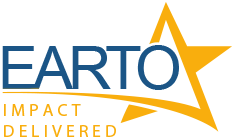10 / 02 / 2023
EARTO Answer to the EC Consultation on the past, present and future of the European Research & Innovation Framework Programmes 2014-2027
Research & Technology Organisations (RTOs) are very pleased with the opportunity offered by the EU Framework Programmes to contribute to the European Research Area by developing pan-European excellent and impactful collaborative applied research. In turn, EARTO Members have been very active participants in EU RD&I Framework Programmes for the last decades.
In our new analysis for Horizon Europe, the share of EU grants to Research & Technology Organisations (RTOs) is consequently larger than RTOs’ share in the total number of FP participants. In both programmes, RTOs have a leading position and driving role in FPs’ multi-disciplinary, large and complex collaborative projects. FP projects where RTOs are active have a larger participation from industry than projects without RTOs. Those trends are even more predominant in the current FP than in the last one as shown in the summary below. In Horizon Europe as in H2020, RTOs have a large share of projects for which they are coordinators.
Based on our members extensive experience in EU RD&I Framework Programmes and in preparation of Horizon Europe mid-term review, EARTO would like to point out the following key issues:
- Instability of the RD&I Budget in the Multi-Financial Framework: The instability of this budget is three-fold: 1) within the MFF, the EU budget is being re-discussed each year (i.e. we see a regular position from the EU Council to reduce attributions to the EU RD&I budget while the European Parliament is pushing for an increase in the negotiations), 2) within the EU FP budget itself, there has been many changes in budget allocations proposed every year, and 3) within the current EU budget, the pressure to re-allocate the FP budget to new top-down EU policies looking for budget without bringing additional funds (i.e. EU RD&I budget is the main EU fund accessible then as most of the EU budget is re-allocated to MS with the largest share of the EU budget allocated to ESIF & CAP). Such budget instability is detrimental to RD&I investments by beneficiaries which are largely co-funding EU RD&I programmes like RTOs and Industry and are based on medium to long-term investment strategies. In addition, without such EU RD&I investments, the targets set for the European Research Area will not be reached.
- The need of proper analysis of the FPs evolution: EARTO calls on the European Parliament ITRE Committee to launch with the EPRS a new study on the evolution of FPs. Indeed, the European Parliament Research Service’s in-depth analysis done in 2017 was of great value for planning the changes needed in the next FP.
- Increasing Distance between the Implementing Agencies & the Policymaking’s Services: EARTO is concerned that the feedback loop that should be organised between the executive agencies managing the implementation of the FP and the DG services managing the policymaking is not ensured. Services are getting further decoupled thereby leading to inadequate policy development and programming development.
- Synergies between EU Funding Programmes having RD&I Components: Today, with the creation of various new EU programmes in this current MFF period, beneficiaries are now facing a multitude of programmes each with its own rules for participation. There is the need for creating a streamlined pathway from research phase to close to market deployment between the various programmes & instruments developed.
More recommendations on each Pillar of Horizon Europe and on rules for participation can be found in our full reaction here
To complete our answer to the EC Consultation with further elaborated feedback on specific issues, please also see:
- EARTO newly published paper on lump-sums
- EARTO Position Paper on Current Hurdles to Mobility of Researchers
- EARTO and other RD&I Stakeholders’ Joint Statement on the Model Grant Agreement’s Intellectual Property Provisions of the European Innovation Council
- EARTO analysis on EARTO Members’ Participation in Horizon Europe until November 2022

